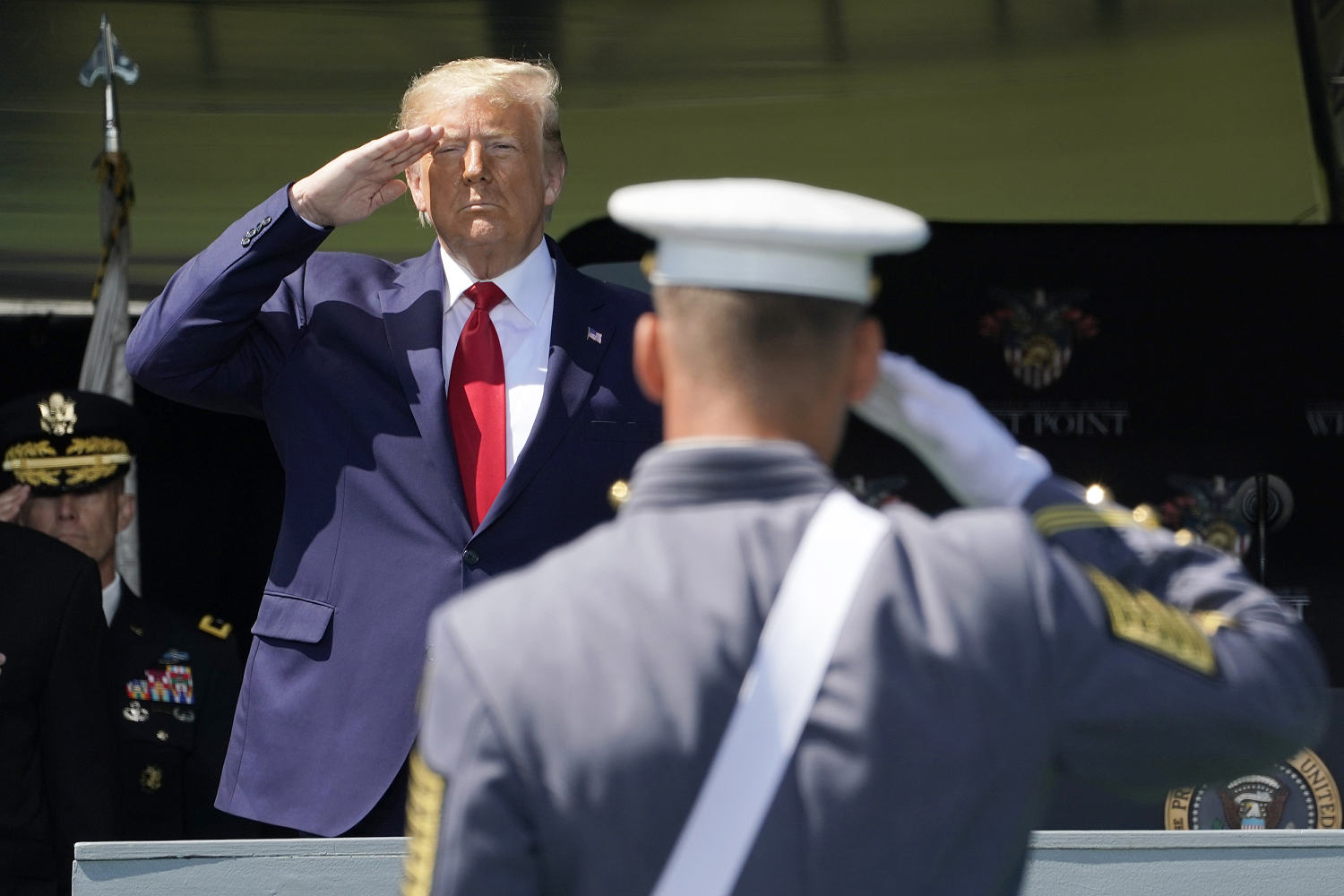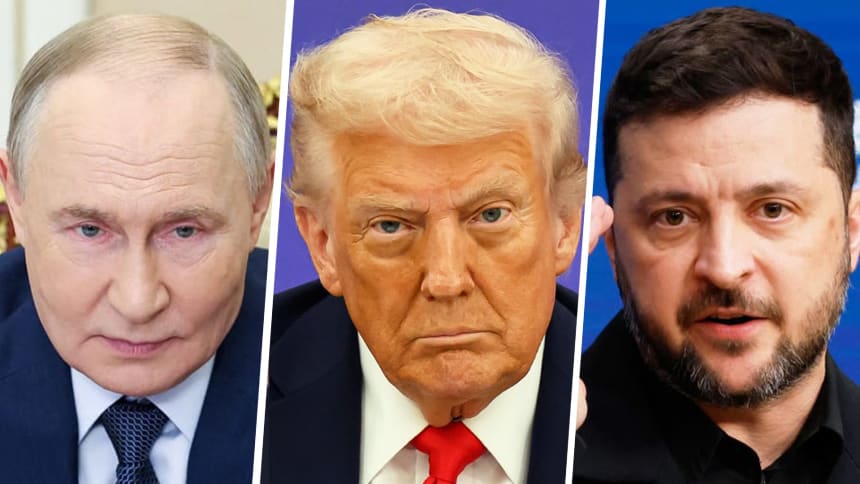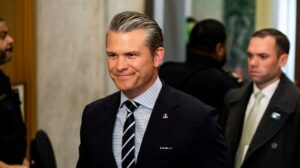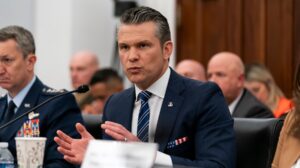The Dictatorship
The greatest danger in Trump’s vision for the U.S. military

Since the election, a series of stories have proved — if proof were needed — that President-elect Donald Trump’s campaign rhetoric about using the U.S. military against political opponents should be taken quite seriously.
First, the Wall Street Journal reported that Trump’s team is considering creating a board of retired senior officers to review serving generals and admirals. (BLN has not been able to confirm the report.) These were then followed by multiple reports of Trump planning to fire the most senior officers and replace them with generals and admirals more closely aligned with the president-elect. The third step was the naming of Fox News host Pete Hegseth as his choice for secretary of defense. Hegseth has made many extreme statements about the U.S. military, including questioning the efforts to build a diverse force.
All together, these reports, if accurate, indicate that the long history of the United States having a nonpartisan military may be at an end.
Even the most competent of these officers are far more likely to make major mistakes as they try to anticipate what might curry favor with the president.
Why is this so important? First, keeping the U.S. military out of partisan battles and keeping partisan bickering out of the military has been key to American military might for generations. When political loyalty replaces merit for promotion and selection to key commands, effectiveness suffers. Such militaries are led not by the most qualified officers, but by those who have most professed fealty to the chief executive. Even the most competent of these officers are far more likely to make major mistakes as they try to anticipate what might curry favor with the president rather than focus their assessments on battlefield realities.
The American military watched this dynamic firsthand when training the Iraqi forces in the late 2000s and early 2010s. When their officers were promoted based on merit, the Iraqis did well. But as partisan dynamics increasingly shaped promotions, the Iraqi army crumbled against the Islamic State’s attacks in 2014.
Second, civilian control of the armed forces depends on officers giving professional advice to leadership so that the civilians can make the big decisions concerning when to go to war, where to focus one’s efforts and so forth. Partisan generals and admirals would only tell the president what he wants to hear, making it more likely the U.S. blunders into a crisis. Again, we have seen this repeatedly happen around the world, including most recently with Russian generals telling Vladimir Putin that defeating Ukraine would be quick and easy.
Third, making partisan identity more important within the armed forces threatens to disrupt the cohesion of American military units. The irony here is clear — that those who have argued against women in combat roles and against efforts to create a diverse force, as Hegseth has, usually cite the threat these people pose to unit cohesion. Yet it is precisely the politicization of the military, making promotion contingent on partisan identity, that is most likely to create suspicion, distrust and rivalry within the American armed forces. Members of the armed forces will view the promotions of others as due to their political connections and loyalty to an individual and a party rather than to the Constitution.
Finally, the greatest danger is that the president might use American troops against the American people. Trump promised in his campaign to use the military against the “enemy within,” referring to his political foes. While the National Guard has been called out frequently in American history to deal with natural disasters and riots, the regular forces have been used rarely over the past hundred years. Famously, presidents from both parties, Dwight D. Eisenhower and John F. Kennedy, called out the U.S. Army to enforce the Supreme Court’s rulings on integrating schools. In neither case was the military using force against the president’s opponents, but instead enforcing the court’s decisions at a time when the court was not seen as a partisan actor.
The strains and divisions and distractions are simply bad for military effectiveness.
Trump, by contrast, threatened to use the Insurrection Act in 2020 to deploy the military against those protesting police brutality. With a much more compliant secretary of defense and with more partisan generals, after purging those who were promoted via normal procedures, Trump is far more likely to use the Army to put down protests in his second term. This, in turn, would divide the military, as not all members will follow such orders even if they are lawful. In addition, another pattern of civil-military relations is that the more a military is used for domestic order, the less effective it is at fighting foes abroad. The strains and divisions and distractions are simply bad for military effectiveness.
While the second Trump administration has not begun formally, its early preparations indicate a desire and, yes, a plan to make the military subservient to one politician and one party, rather than serving the country and the national interest. This will be more harmful to the American military than the defeat in Vietnam or the withdrawal from Afghanistan. And it will weaken U.S. standing in the world even as America’s adversaries are increasingly aggressive.
Stephen Saideman
Stephen Saideman is the Paterson Chair in International Affairs at Carleton University and director of the Canadian Defence and Security Network.
The Dictatorship
Trump’s border czar says ‘small’ security force will remain in Minnesota after enforcement drawdown

WASHINGTON (AP) — White House border czar Tom Homan said Sunday that more than 1,000 immigration agents have left Minnesota’s Twin Cities area and hundreds more will depart in the days ahead as part of the Trump administration’s drawdown of its immigration enforcement surge.
A “small” security force will stay for a short period to protect remaining immigration agents and will respond “when our agents are out and they get surrounded by agitators and things got out of control,” Homan told CBS’ “Face the Nation.” He did not define “small.”
He also said agents will keep investigating fraud allegations as well as the anti-immigration enforcement protest that disrupted a service at a church service.
“We already removed well over 1,000 people, and as of Monday, Tuesday, we’ll remove several hundred more,” Homan said. “We’ll get back to the original footprint.”
Thousands of officers were sent to the Minneapolis and St. Paul area for U.S. Immigration and Customs Enforcement’s “Operation Metro Surge.” The Department of Homeland Security said it was its largest immigration enforcement operation ever and proved successful. But the crackdown came under increasing criticism as the situation grew more volatile and two U.S. citizens were killed.

People take part in an anti-ICE protest outside the Governors Residence in St. Paul, Minn., on Friday, Feb. 6, 2026. (AP Photo/Ryan Murphy)
People take part in an anti-ICE protest outside the Governors Residence in St. Paul, Minn., on Friday, Feb. 6, 2026. (AP Photo/Ryan Murphy)
Protests became common. A network of residents worked to help immigrants, warn of approaching agents or film immigration officers’ actions. The shooting deaths of Renee Good and Alex Pretti by federal officers drew condemnation and raised questions over officers’ conduct, prompting changes to the operation.
Homan announced last week that 700 federal officers would leave Minnesota immediately, but that still left more than 2,000 in the state. He said Thursday that a “significant drawdown” was already underway and would continue through this week.
Homan said enforcement would not stop in the Twin Cities and that mass deportations will continue across the country. Officers leaving Minnesota will report back to their stations or be assigned elsewhere.
When asked if future deployments could match the scale of the Twin Cities operation, Homan said “it depends on the situation.”
The Dictatorship
Rubio says ‘no reason’ to doubt Navalny was killed by dart frog poison
ByDavid Rohde
Secretary of State Marco Rubio says there is “no reason” to doubt a new report by five European nations that Russian opposition leader Alexei Navalny was killed in a Russian government prison with poison found in Latin American dart frogs.
A fatal toxin not found naturally in Russia — epibatidine — was “conclusively” discovered in samples of Navalny’s body by a joint investigation conducted by Germany, France, Britain, the Netherlands and Sweden, according to a joint statement by the nations on Saturday.
The toxin is only known to exist in poison dart frogs in Central and South America. One species, the phantasmal poison frog, contains a chemical that is 200 times more potent than morphine.
“It’s a troubling report,” Rubio told reporters at a news conference during a visit to Slovakia on Sunday. “We don’t have any reason to question it.”

It was not clear why the United States did not participate in the investigation of Navalny’s death. But the finding comes amid rising support in the Senate for a bill that would impose sweeping new sanctions against the government of Vladimir Putin, which has been opposed by the Trump administration.
Sen. Jeanne Shaheen, D-N.H., the top Democrat on the Senate Foreign Relations Committee, noted on the closing day of the Munich Security Conference, where Rubio received a standing ovationthat 84 out of 100 senators have signed on to co-sponsor the bill authored by Sen. Lindsey Graham, R-S.C.
“I don’t understand the reluctance to go after Vladimir Putin and what Russia is doing in Ukraine,” Shaheen told a group of reporters. “The failure by the United States to act has extended this war.”
Russian officials have repeatedly denied playing any role in the death of Navalny two years ago in a government-run penal colony in the Arctic. They called the new European report “a Western propaganda hoax,” according to Russia’s state news agency.

The report comes as U.S. envoy Steve Witkoff and Jared Kusher, President Donald Trump’s son-in-law, are expected to meet with both Russian and Iranian officials on Tuesday in Geneva. The goal of the Russia talks is to reach a peace settlement in Ukraine by a June deadline the administration has set. (Witkoff and Kushner are also set to join a second round of nuclear talks with Iranian officials in Geneva on the same day.)
Critics of Trump, who promised to end the war days after returning to office, say Russia has not been seriously negotiating and is simply playing for time so it can gain ground on the battlefield. Democrats have also expressed concerns over reports that Witkoff has been negotiating business deals during peace talks with Kirill Dmitriev, a former Wall Street banker who runs Russia’s sovereign wealth fund.
Last week, Ukrainian President Volodymyr Zelenskyy said that Dmitriev pitched $12 trillion in bilateral economic agreements with the U.S. It is unclear how such large deals could be achieved. The $12 trillion figure is about four times the size of Russia’s 2025 gross domestic product.
A European diplomat whose country has negotiated with Russia in the past told MS NOW that Moscow has repeatedly made such investment offers. But the business entities end up being largely Russian controlled. “They lure you in,” said the diplomat, who was granted anonymity to speak candidly.
Shaheen expressed skepticism as well.
“I’m concerned about all things Russian in this administration,” Shaheen said. “I’m not a conspiracy theorist. But I’m beginning to become one with respect to Putin and President Trump.”

David Rohde
David Rohde is the senior national security reporter for MS NOW. Previously he was the senior executive editor for national security and law for NBC News.
The Dictatorship
FBI links glove found near Nancy Guthrie’s home to suspect on video
A glove with DNA found near 84-year-old missing Nancy Guthrie’s home appears to match those worn by a masked person caught on surveillance footage, the FBI said Sunday.
“The FBI received preliminary results yesterday on 2/14 and are awaiting further testing,” the bureau said in a statement. “This process typically takes 24 hours from when the FBI receives DNA.”
The FBI said investigators collected “approximately 16 gloves in various areas near” Guthrie’s house in Tucson, Arizonawhere she was last seen on Jan. 31. Most of those gloves were “searchers’s gloves that they discarded in various areas when they searched the vicinity” but the glove with the “DNA profile recovered is different and appears to match the gloves of the subject in the surveillance video,” the FBI said.
“What we have is a lead here. The glove retrieved would need to have the victim’s DNA or some other forensic material to tie it to the home,” a law-enforcement source familiar with the investigation cautioned. “It must be connected to the home and victim. That would make the glove actual evidence, at this point it’s a lead. A good lead.”

The FBI said said the glove was found in a field approximately two miles from Guthrie’s house. The glove resembles the one on the hand of a person who was captured on porch camera video footage at the home of NBC “Today Show” host Savannah Guthrie’s mother the night she went missing.
The agency said it is awaiting quality control and official confirmation before putting the individual’s profile into the bureau’s national database, which could take up to 24 hours.
The FBI has described the man captured in photographs and on video as approximately 5’9”-5’10” with an average build. In addition to gloves, he was also seen wearing a ski mask and a black, 25-liter “Ozark Trail Hiker Pack” backpack. The agency on Thursday increased its reward for any information leading to an arrest and conviction of anyone involved in Guthrie’s disappearance to $100,000.
Guthrie was reported missing by her family on Feb. 1. Sheriff’s deputies also found blood on the front porch that was later confirmed to belong to the network host’s mother. Guthrie’s children, including Savannah, have posted several videos pleading for their mother’s release, agreeing to pay any ransom demanded and asking for help from the public.
Alex Tabet, Marc Santia and Ken Dilanian contributed to this report.
Erum Salam is a breaking news reporter and producer for MS NOW. She previously was a breaking news reporter for The Guardian.
-

 The Dictatorship1 year ago
The Dictatorship1 year agoLuigi Mangione acknowledges public support in first official statement since arrest
-

 Politics12 months ago
Politics12 months agoFormer ‘Squad’ members launching ‘Bowman and Bush’ YouTube show
-

 The Dictatorship5 months ago
The Dictatorship5 months agoMike Johnson sums up the GOP’s arrogant position on military occupation with two words
-

 Politics12 months ago
Politics12 months agoBlue Light News’s Editorial Director Ryan Hutchins speaks at Blue Light News’s 2025 Governors Summit
-

 Politics12 months ago
Politics12 months agoFormer Kentucky AG Daniel Cameron launches Senate bid
-

 The Dictatorship1 year ago
The Dictatorship1 year agoPete Hegseth’s tenure at the Pentagon goes from bad to worse
-
Uncategorized1 year ago
Bob Good to step down as Freedom Caucus chair this week
-

 Politics10 months ago
Politics10 months agoDemocrat challenging Joni Ernst: I want to ‘tear down’ party, ‘build it back up’






